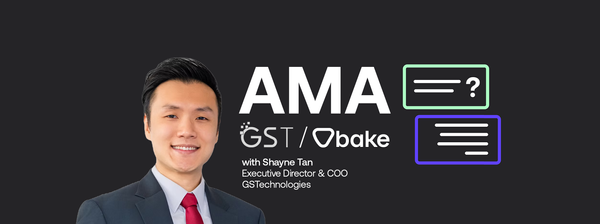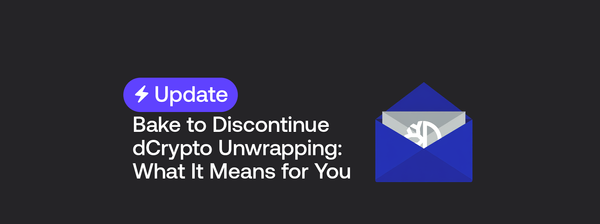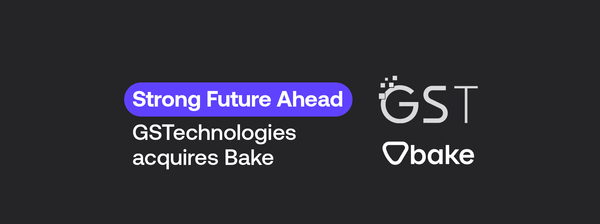Tokenizing Everything: Real World Assets (RWA) in Crypto
The crypto economy often faces criticism for its detachment from the physical world, a perception that generally stems from cryptocurrencies' volatile and speculative nature.
Crypto can seem disconnected from the tangible economic activities and assets that underpin traditional financial systems.
Real-world asset (RWA) tokenization aims to solve this problem. By bridging the gap between decentralized finance (DeFi) and traditional stores of value like bonds and real estate, RWAs introduce a stable and tangible element into the crypto space.
BlackRock, the world’s largest asset manager, aims to tokenize $10 trillion of its assets, indicating a trend that could redefine how people interact with crypto and pave the way for a surge in the tokenization of RWAs.
What is RWA Tokenization?
RWAs refer to a wide variety of assets that exist physically or have significant real-world value. Such assets include buildings and land, as well as intangible assets such as stocks, bonds, and other financial instruments.
The tokenization of these real-world assets refers to the creation of digital tokens (or cryptocurrencies) that represent ownership or a stake in these real-world assets.
How are RWAs Created?
The process of tokenizing Real World Assets (RWAs) involves several steps that translate physical or intangible assets into blockchain tokens.
This transformation is not just a technical undertaking but also involves a regulatory process to ensure the tokens accurately and legally represent ownership of real-world assets.
Step 1: Selection and Evaluation of Assets
The first step in RWA tokenization is selecting the asset to be tokenized, which could be anything from real estate and artworks to commodities and intellectual properties. A thorough evaluation of the asset's market value, legality, and eligibility for tokenization is conducted. This evaluation ensures the asset's suitability for entering the digital marketplace.
Step 2: Legal Framework Establishment
The next step is creating a clear legal structure around the tokenized asset. This includes defining the rights and responsibilities of token holders and ensuring compliance with existing regulatory frameworks. Legal clarity helps manage the asset and uphold investor confidence and security.
Step 3: Defining Token Specifications
Deciding on the type of token—whether fungible (identical and interchangeable) or non-fungible (unique and non-interchangeable)—is a critical step. This also involves selecting the blockchain technology that will host the token, such as Ethereum, Polkadot, or DeFiChain. Each offers different features that could benefit the tokenization process based on the asset's requirements.
Step 4: Due Diligence and Asset Auditing
Next, the tokenized asset must be audited to ensure no mistakes or loopholes exist. This typically involves third-party auditors who assess and verify the smart contract code used to tokenize the asset, the asset's attributes, and its legal standings.
Step 5: Token Creation and Issuance
The actual creation of tokens is executed through smart contracts on the chosen blockchain. These contracts govern the tokens' behaviors and their interactions with buyers and sellers. Once the tokens are minted, they are issued and become available for trading on various platforms.
Step 6: Establishing a Trading Platform
To be bought, sold, or traded, tokens are listed on decentralized exchanges (DEXs) or through dedicated marketplaces. These platforms facilitate liquidity and allow investors to engage with the tokenized assets directly.
Step 7: Integration with Off-Chain Data
To ensure that the tokenized assets remain relevant and up-to-date with real-world changes, they are often integrated with off-chain data through Oracles. This can include real-time financial data, ownership changes, and more, which are essential for maintaining the tokens' integrity and value.
Benefits of RWA Tokenization
Liquidity: Tokenization makes it easier to buy, sell, or trade traditionally low-liquidity assets. This enhances market efficiency, enabling faster and more frequent transactions, which can lead to more dynamic pricing and improved market depth.
Transparency: Blockchain technology ensures all transactions are recorded transparently, making it easier to track asset ownership and changes over time. This helps reduce fraud and disputes over asset ownership, as every transaction and transfer is verifiable and permanently recorded on the blockchain.
Accessibility: By lowering entry barriers, tokenization allows a wider range of investors to participate in markets from which they might have been previously excluded. This democratization of access helps small investors engage with asset classes like real estate and fine art, which were traditionally dominated by larger investors.
Tradability: Tokenized assets are instantly tradeable on any Decentralized Exchange (DEX). This allows for the creation of new markets and investment opportunities that were previously non-existent.
Immutability: Records on the blockchain are immutable (they cannot be altered). This ensures the historical data of asset ownership and transactions cannot be tampered with and builds trust among market participants.
Divisibility: Tokenization allows assets to be divided into smaller units, making them accessible to more investors. This divisibility makes it feasible for investors to buy fractions of high-value assets, such as pieces of expensive artwork or real estate.
Programmability: Smart contracts can automate transactions and other functions, reducing the need for intermediaries such as brokers and lawyers. This automation cuts costs and speeds up transactions.
Use Cases for Real World Assets (RWAs)
Real Estate Investment and Management
By moving property ownership onto the blockchain, every aspect, from buying to selling, becomes more streamlined. Investors can purchase fractional shares of properties, making real estate investment more accessible and liquid. Blockchain also ensures all transactions and ownership records are immutable and transparent, reducing the administrative burden and costs typically associated with real estate dealings.
Art and Collectibles
The art market benefits similarly from RWA tokenization, particularly through improving liquidity and transparency. Investors can own shares of valuable artwork they would otherwise be unable to afford.
Supply Chain Management
By tokenizing commodities as RWAs, companies can monitor the movement and condition of goods in real-time, from production to delivery. This increased transparency helps reduce fraud, ensure compliance, and improve efficiency.
Healthcare Data Management
Blockchain can secure sensitive medical data and ensure it's easily accessible to authorized personnel without compromising patient privacy. This enables better coordination among different healthcare providers, streamlining processes and potentially improving patient outcomes.
Intellectual Property
Tokenization also applies to intellectual property. Blockchain can provide a transparent system for registering and transferring IP rights, which helps reduce disputes and simplifies licensing processes.
How to Invest in RWA Projects
RWA projects often launch their own utility token, which is used as a governance token, to allow users to have a direct say on the project's future direction. It is possible to invest directly in almost all major RWA projects through utility tokens.
Through Bake’s Real World Tokenizers Smart Bundle, you can optimize your exposure to the tokens associated with the nine industry-leading RWA projects in just a couple of taps.

DISCLAIMER: Please note that the information on this blog and in any articles posted on this blog is for general information only and should not be relied upon as financial advice. Cake Pte. Ltd., Cake DeFi, UAB, and its affiliates (the “Cake Group”) are not licensed financial advisers. You may wish to approach your own independent financial advisor before making any decision to buy, sell or hold any product and/or digital assets mentioned in this blog.
Any views, opinions, references, assertions of fact and/or other statements are not necessarily the views held by the Cake Group. The Cake Group disclaims any liability whatsoever that may arise out of or in connection with such statements. Always do your own research before investing in any financial assets and consult a qualified financial advisor if necessary.




